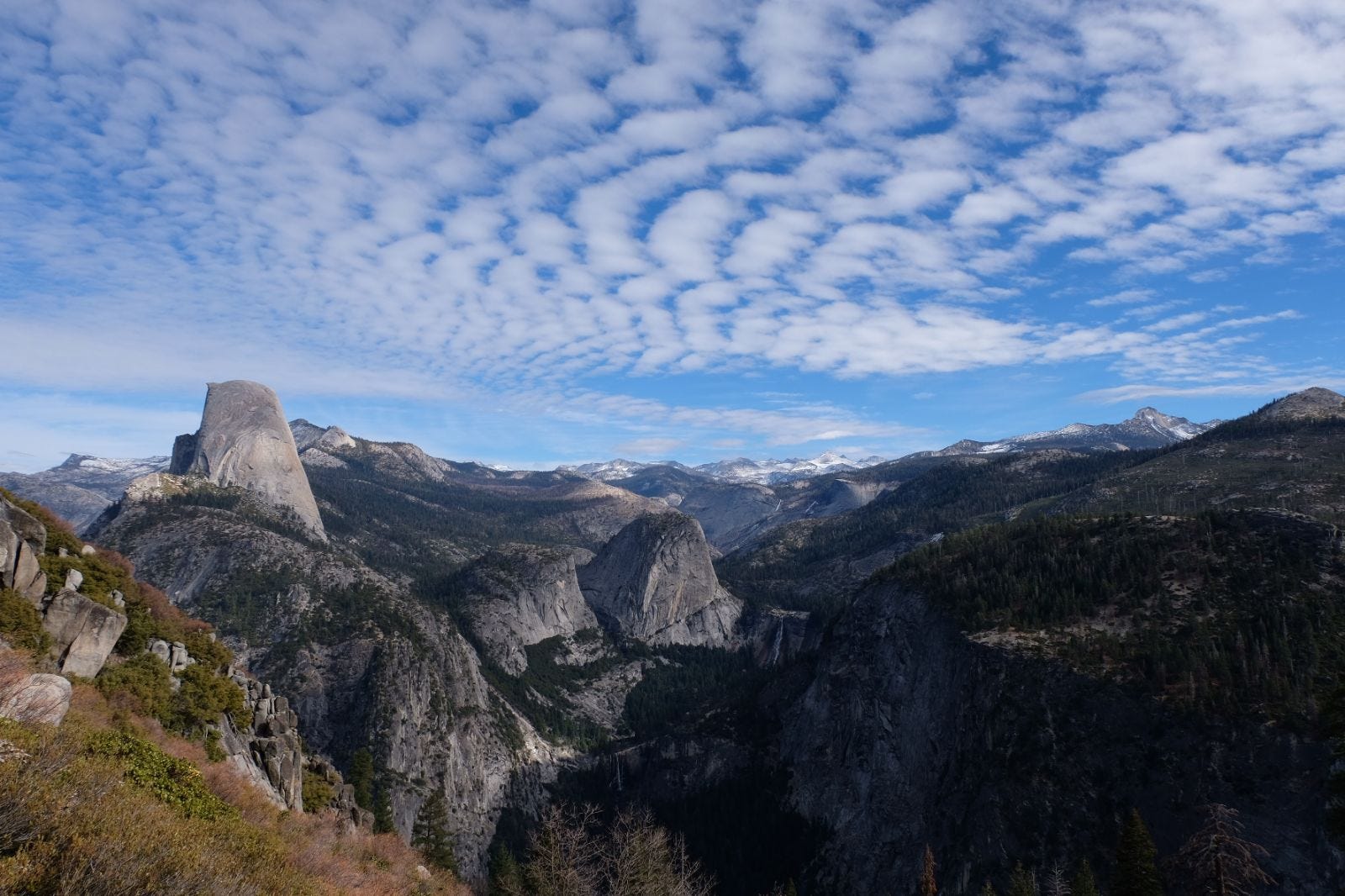We just estimated our carbon footprint using WWF’s carbon footprint estimator and offset it via the charity Cool Earth. We know that carbon offsetting is by no means perfect. It would always be better to minimise one’s footprint rather than offsetting in hindsight. But it’s a start, and if nothing else, it raises awareness about the impact we have, and hopefully motivates us to work harder to reduce that impact.
Why is this important to us?
We’ve been environmentally minded for a while now, and we’re still learning a lot in that respect. Since we’ve been on our trip (driving across the Americas in a converted old fire truck) we’ve become a lot more aware of our own impact, but also of the impact we as humans in general have on our environment. We’ve overheard people talk about hotter summers and milder winters all the way across Canada and Alaska. This has been confirmed when talking to rangers in National Parks, and by many exhibits in the associated museums. Looking up photos of the places we’ve been to from a hundred years ago is pretty eye-opening too. Everywhere along our trip, often along the road and well-trodden trails, but even on supposedly pristine beaches on Maui (a small detour from our main trip), we’ve found surprising and disturbing amounts of litter and plastic pollution. We’re also aware that the more wealthy you are, the bigger your impact on the environment, because you can buy more stuff, fly more often, drive more miles. We’re particularly guilty of the latter two ourselves.

We think it’s worth working towards preservation of beautiful places such as Yosemite Valley.
Why Cool Earth?
We recently read a book called Doing Good Better by William MacAskill, which goes into much detail about different ways to evaluate charities and how to maximise ones impact, whether by donating to charities or by choosing a career with a positive impact. The author ranks Cool Earth as the most effective charity for carbon offsetting. There’s also an in-depth review of Cool Earth on givingwhatwecan.org, in case you don’t want to buy the book.
What are our plans to minimise our own impact for 2018?
We want to:
- Reduce the amount of waste we produce. Since living in our van we’ve become a lot more aware of how much waste we produce, mainly through food packaging. Over the last couple of months we’ve tried to minimise this, and in 2018 we want to only buy unpackaged food whenever possible.
- Reduce the amount of meat and fish we eat even further. We’ve been flexitarian (vegetarian at home, often meat or fish when eating at a friend’s house or restaurant) for a while, but we want to reduce our meat consumption even further.
- Always take our own sporks to avoid having to use plastic cutlery (and also try to not eat at take-out places as often).
- Always refuse the straw. Often you’ve got to be pretty quick there, as in most places the straw is added automatically. Also check out The Last Plastic Straw.
- Buy less unnecessary stuff. Just because we like the look of something doesn’t mean we need it. If we really need something, buy from environmentally and socially conscious companies, or even better: buy second hand.
Other related resolutions:
We want to:
- Estimate our current carbon footprint more precisely and compare it to the global average, the UK average, and the carbon footprint of our old lives in London from before this trip. Based on that, we’ll be able to work out the best ways to reduce our footprint.
- Write semi-regularly about the effects of climate change and pollution we encounter along our trip. This should serve both as a reminder for ourselves as well as hopefully help inform others by telling local and personal stories of how climate change and pollution affects real lives.
- Leave reviews on Google etc. of places that use excessive plastic packaging or otherwise pollute unnecessarily. We’re not sure how much of an impact this will have, but if others get on board with this it could end up making a difference.
